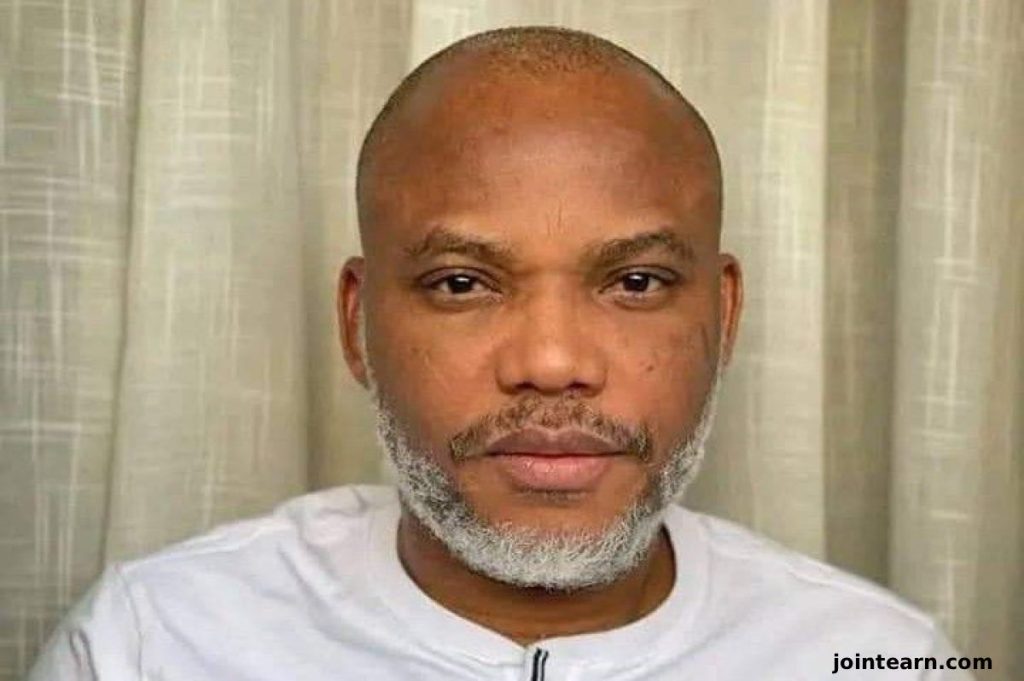
Detained leader of the Indigenous People of Biafra (IPOB), Mazi Nnamdi Kanu, has filed a fresh motion before the Federal High Court in Abuja, asking the court to strike out all charges against him and order his immediate release.
In the motion dated October 30, 2025, titled “Motion on Notice and Written Address in Support,” Kanu argued that there is no valid or subsisting charge against him under any existing Nigerian law, insisting that the case currently before the court is “a nullity ab initio for want of any extant legal foundation.”
Representing himself, Kanu filed the motion under Sections 1(3), 6(6)(b), and 36(12) of the 1999 Constitution, the Evidence Act 2011, and the Terrorism (Prevention and Prohibition) Act (TPPA) 2022.
He claimed that the prosecution relied on repealed and non-existent statutes, including the Customs and Excise Management Act (CEMA)—repealed by the Nigeria Customs Service Act 2023—and the Terrorism Prevention (Amendment) Act 2013, which was replaced by the TPPA 2022.
According to Kanu, this reliance violates Section 36(12) of the Constitution, which forbids anyone from being tried for an offence not defined under an existing law. He therefore urged the court to strike out the charges in their entirety, describing them as offences “unknown to law.”
Citing the Supreme Court’s ruling in FRN v. Kanu (SC/CR/1361/2022), the IPOB leader argued that lower courts are bound under Section 122 of the Evidence Act 2011 to take judicial notice of repealed laws. Failure to do so, he said, renders any resulting proceedings void.
Kanu also challenged the court’s jurisdiction, noting that the alleged offences were said to have occurred in Kenya. He argued that under Section 76(1)(d)(iii) of the TPPA 2022, such acts require validation by a Kenyan court before being tried in Nigeria. He further said this omission violates Article 7(2) of the African Charter on Human and Peoples’ Rights, which guarantees fair trial standards.
He maintained that any law or judicial act inconsistent with the Constitution is void under Sections 1(3) and 36(12), citing previous cases including Aoko v. Fagbemi (1961) 1 All NLR 400 and FRN v. Ifegwu (2003) 15 NWLR (Pt 842) 113, where convictions based on non-existent laws were overturned.
Kanu asked the court to compel the prosecution to respond strictly on points of law within three days and to deliver its ruling on or before November 4, 2025.
He noted that his motion raises only constitutional and legal questions and therefore does not require an affidavit in support.


Leave a Reply